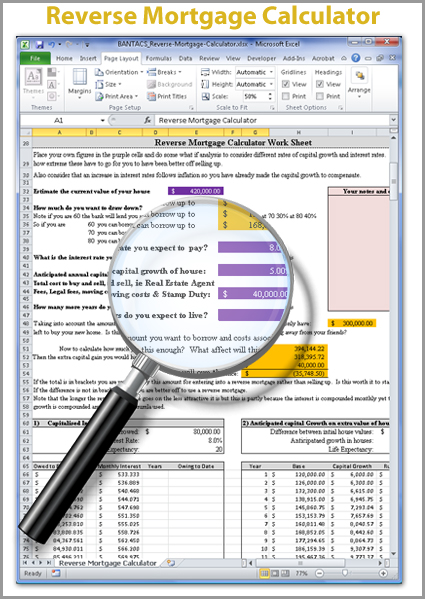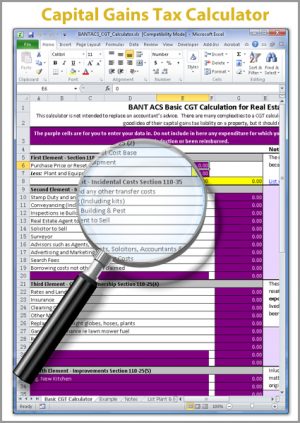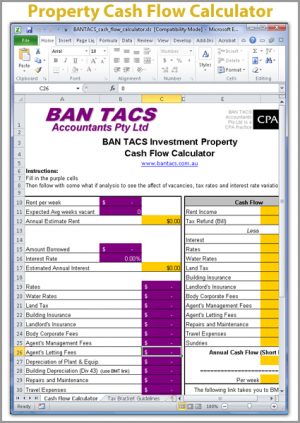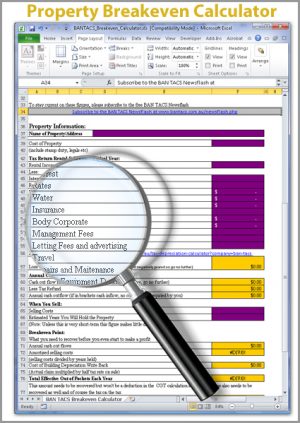This calculator is intended to help you analyse whether selling the family home is a better or worse option than a reverse mortgage. Reverse mortgages are when the bank gives you cash now and takes it back, with interest, out of the sale proceeds of your house when you die. The bank can only take back its money when you die or sell the house so the family home is not at risk, in your lifetime unless poor health would have forced you to sell anyway.
Money lost in selling
The calculation that follows attempts to take into account the money lost in selling the current home and buying a new one such as legal fees, real estate agent fees and stamp duty. Then add to this the fact that the captial growth for the rest of your life is on a property of lower value. Of course the situation is different if you sell the family home and rent. It is far worse! Your pension will probably be reduced because you have the balance of the sale proceeds in the bank, where as if they are tied up in a new home the capital growth is not taken into account when assessing your eligibility for a pension.
Pension purposes
Note that with a reverse mortgage it is better for pension purposes to draw the funds out when you are ready to spend them as Centrelink will deem any money you have sitting around in the bank.
Reverse Mortgage Verses Downsizing
Reverse mortgages in my opinion get a bad rap. Firstly parents feel that they haven’t scrapped and saved all their life to let the bank get their hands on everything when they die. And I suspect children are a bit concerned about their inheritance. But what if I could show you with a few clever numbers that a reverse mortgage is a win win situation?
Coming from the point of view that elderly home owners should not have to go without just to protect their children’s inheritance but the comfort of their own home is important to them. Let’s take the example of a recently widowed pensioner who of course is having trouble getting by on the single pension. She possibly has another 20 years to live. Her car will need replacing soon and she still owes $67,000 on her house. In total she needs around $80,000 to pay off the house and buy a new car. On the single age pension servicing such a loan will be impossible and I don’t think any deserving heirs would expect her to do so. Nevertheless, because of the fore mentioned prejudices against reverse mortgages she is considering selling her home and downsizing to a smaller cheaper version.
If she was to sell her home she would be up for around $40,000 in Real Estate Agent’s fees, stamp duty, legal fees and moving costs. Her current home is worth $420,000 so she would only have $300,000 left to buy her next home and adapt it to her needs.
If instead she increased her mortgage to $80,000 and reversed it she would not have to worry about any repayments, the bank would simple take its money from the proceeds of the sale of the house when she died. The bank cannot take the house from her no matter how long she lives regardless of what happens to the housing market so she is safe in her family home but now a lot more comfortable because she is no longer making the mortgage repayments and has a more reliable car.
It is not just the costs of relocating that have to be considered. For the next 20 years the estate will only benefit from the capital growth on a $300,000 house compared with a $420,000 house.
So, in these particular circumstances, if the average interest rate, over the next 20 years, is less than 1.5% more than the expected capital growth then she is better off to stay in her current home. In fact she could be increasing the kids inheritance by around $30,000 by staying put. Plus of course the $40,000 that will not need to be spent on relocating. Take the $40,000 into account and interest rates could average as high a 7.5% yet as long as capital growth averages at least 5% then the inheritance is still a fraction better off and she gets to keep her home.
Obviously there are many variables on this and some serious what if analysis should be done before making any decisions. The followe XL spread sheet will facilitate this.
So Mum has not had to pay off the $67,000 out of her meagre pension and has a safe new reliable car, while continuing to live near her friends in the family home. Seem too good to be true? It works because the amount owing on the house is very small compared with the overall value of the property. Taking the buying, selling and moving costs into account she is paying interest on an $80,000 loan to hold an extra $120,000 in assets that will increase in value. Personally, I would suggest she reverse mortgage for an even higher amount and enjoy life while she is still fit, maybe go on a cruise. But only draw out what she intends to spend otherwise Centrelink may be tempted to deem it.
As a general rule of thumb if you are 60 years old the bank will only lend you 20% of the valuation of you home. At 70 they will lend you 30% and at 80 40%. As you increase in age and your home appreciates you maybe able to take an advance on this increasing equity.
Think very carefully before you fix the interest rate on a reverse mortgage. It may sound like a way of protecting the inheritance but it is at your peril because, should you need to sell the house to move into a care facility, you will not just have to pay out what you owe to the bank but you may also have to compensate them for the lost interest over the rest of the years the life expectancy tables expect you to live.
Note: This is an MS Excel file; for help using BAN TACS Accountants Excel Calculators and Spreadsheets go to our BAN TACS Excel Help page.






Reviews
There are no reviews yet.